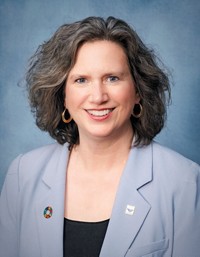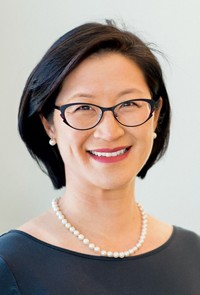Advertisement
Grab your lab coat. Let's get started
Welcome!
Welcome!
Create an account below to get 6 C&EN articles per month, receive newsletters and more - all free.
It seems this is your first time logging in online. Please enter the following information to continue.
As an ACS member you automatically get access to this site. All we need is few more details to create your reading experience.
Not you? Sign in with a different account.
Not you? Sign in with a different account.
ERROR 1
ERROR 1
ERROR 2
ERROR 2
ERROR 2
ERROR 2
ERROR 2
Password and Confirm password must match.
If you have an ACS member number, please enter it here so we can link this account to your membership. (optional)
ERROR 2
ACS values your privacy. By submitting your information, you are gaining access to C&EN and subscribing to our weekly newsletter. We use the information you provide to make your reading experience better, and we will never sell your data to third party members.
Policy
Committee On Committees
Tapping the reservoir of talent in ACS keeps the society's business moving
by Corinne A. Marasco
October 22, 2007
| A version of this story appeared in
Volume 85, Issue 43
The American Chemical Society conducts much of its business through its popular deliberative body, the ACS Council, but issues requiring council attention nearly always originate in the society's committees. One important way that ACS members can have an impact on the society's governance is by volunteering to serve on a committee. The Committee on Committees (ConC) plays a major role behind the scenes to help the society's governance structure run smoothly.
"When you mention the committee's name, people don't recognize it," says ConC Chair Neil D. Jespersen, of St. John's University, Queens, N.Y.
Currently, 43 committees govern ACS, 31 of which are council-related. Committees are often identified by their place in the governance structure: There are council standing committees, joint board-council committees, society committees, other committees of council, and elected committees of council. ConC is responsible for 28 of the council-related committees.
ConC is classified as an elected committee and was formed in 1974. It is composed of the ACS president-elect and 15 voting councilors.
Chair
Neil D. Jespersen, St. John's University (2007)
Peter K. Dorhout, Colorado State University (2008)
Committee Website
Membership
ACS president-elect (ex officio), 15 members (elected by council), one ACS staff liaison
Classification
Elected Committee of Council
Subcommittees
Diversity, Industrial Chemists Pipeline, Leadership Development
Task Forces
Chair & Staff Liaison Evaluations, Committees' Financial Issues, Councilor Preference Forms, Web Page
Inception
Established by ACS Council in 1974
ConC's official responsibilities are to assist and advise in the appointments to all committees; recommend to the council the responsibilities and sizes of all committees, as well as whether to establish, disband, or merge them; coordinate the agenda and meeting times of all committees; and assist in assigning to appropriate committees petitions to amend the ACS constitution and bylaws.
The members of ConC each serve as liaisons to two of the 28 committees for which it has responsibility; this practice provides an important way of maintaining a healthy committee system. "In addition, ConC liaisons consult with the current chair, staff liaison, and selected committee members to assess the committee," Jespersen says. "This assessment is the basis for ConC's recommendations to the president-elect as to who should be appointed chair, as well as any replacements and reappointments."
ConC conducts most of its business at ACS national meetings, primarily because other committees meet at the same time. ConC also meets after the council meeting ends at the fall national meeting to make recommendations on committee appointments for as many people as there are interested in serving. ConC can meet nearly all committee assignment requests.
Jespersen estimates that in 2007 more than 700 committee members are serving as members, associates, or consultants on 31 council-related committees. He estimates that a large percentage of councilors are serving on committees. One misperception is that the committee system has no room for noncouncilors. In fact, 22 council-related committees are not solely composed of councilors. In 2007, close to 400 noncouncilors are serving as members, associates, or consultants.
ConC performs an in-depth review of each committee's performance every five years. ConC conducts three or four performance reviews annually. The chair appoints a ConC member other than the subject committee's liaison to conduct the review. Initial reports are presented to ConC and are shared with the committee chair and staff liaison, while final reports and recommendations are presented to the council and to the board if the committee under review is designated as joint board-council.
ConC supports its work through a number of subcommittees and task forces. The Subcommittee on Diversity monitors the diversity of the ACS committee structure to ensure that minorities have an opportunity to serve. The Subcommittee on Industrial Chemists Pipeline pursues greater involvement of industrial chemists in society governance. The Subcommittee on Leadership Development undertakes the training of new committee chairs.
Councilors and noncouncilors are asked annually to submit a committee preference form indicating on which committees they would like to serve or would be willing to serve if appointed. This information helps the president-elect, board chair, and ConC in making committee appointments. The Task Force on Councilor Preference Forms oversees this process.
The Task Force on Chair & Staff Liaison Evaluations develops and proposes a procedure for committee members to evaluate the chair and the staff liaison.
Compensation for councilor travel to national meetings for committee business falls under the purview of the Task Force on Committees' Financial Issues.






Join the conversation
Contact the reporter
Submit a Letter to the Editor for publication
Engage with us on Twitter